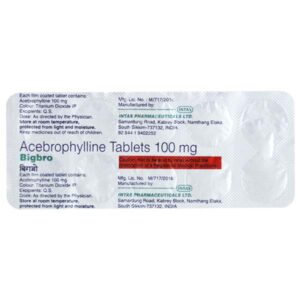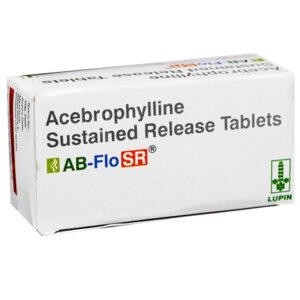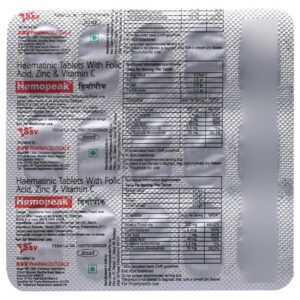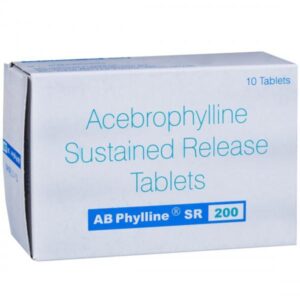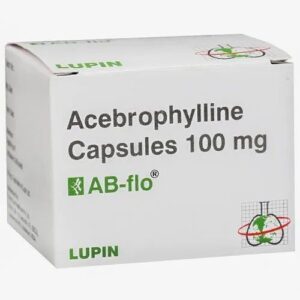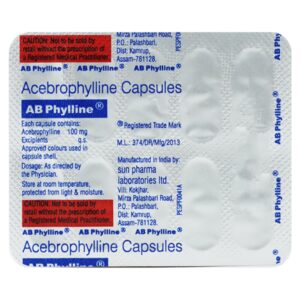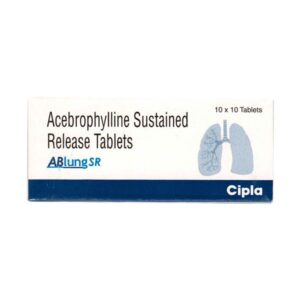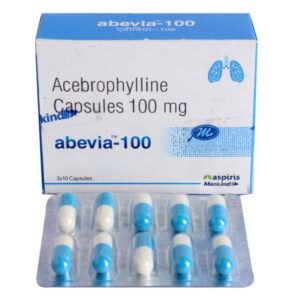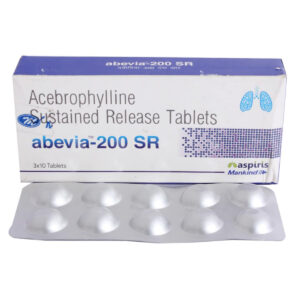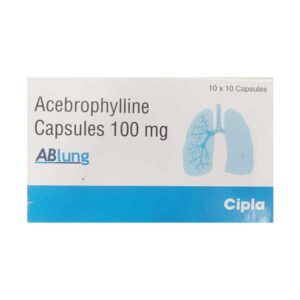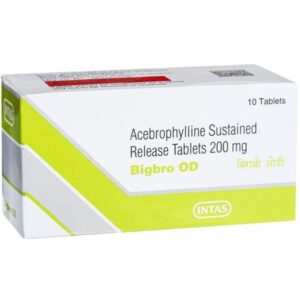ACEBROPHYLLINE
ACEBROPHYLLINE: ACEBROPHYLLINE is a medication that belongs to the class of bronchodilators, primarily used in the treatment of respiratory disorders such as chronic obstructive pulmonary disease (COPD) and asthma. It is available in tablet form.
The mechanism of action of ACEBROPHYLLINE is not fully understood. However, it is believed to work by increasing the levels of certain chemicals called adenosine and phosphodiesterase in the body. This leads to bronchodilation, which helps to relax the muscles in the airways and improve breathing.
The usual recommended dose of ACEBROPHYLLINE is 100 mg to 200 mg per day, which can be divided into two doses. However, the exact dosage may vary depending on the severity of the condition and the individual patient’s response.
As with any medication, ACEBROPHYLLINE may have some side effects. Common side effects include nausea, vomiting, stomach discomfort, diarrhea, headache, and dizziness. Some individuals may also experience skin rashes or itching. It is important to consult a healthcare professional if these side effects are severe or persistent.
Additionally, ACEBROPHYLLINE should be used with caution in patients with a history of peptic ulcers, as it may increase the risk of gastrointestinal bleeding. It is also not recommended for use in individuals with a known hypersensitivity to the drug or its components.
In conclusion, ACEBROPHYLLINE is a bronchodilator used for the treatment of respiratory disorders such as COPD and asthma. It works by relaxing the muscles in the airways and improving breathing. It is available in tablet form and should be taken at the recommended dosage. Common side effects include nausea, vomiting, stomach discomfort, and headache. It is important to consult a healthcare professional for personalized advice and to discuss any concerns or potential drug interactions.


